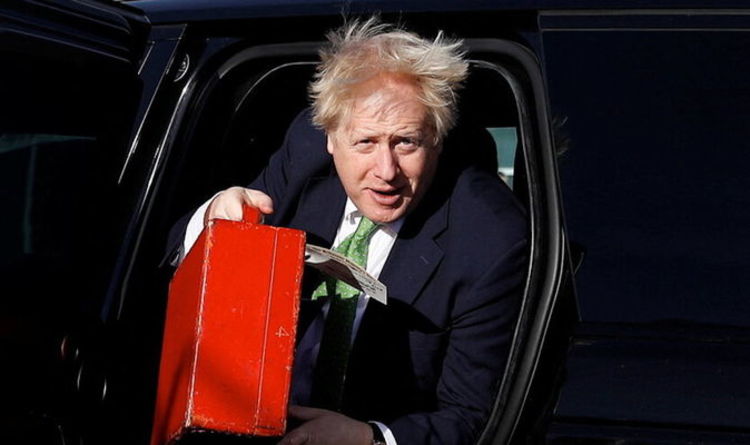

The Prime Minister’s trip comes as the UK leads NATO through the growing conflict. Over the last few weeks, British officials have taken an intelligence initiative and released briefings on Vladimir Putin‘s plans for Ukraine‘s leadership. As he plans a call with the Russian President, Boris Johnson has an opportunity to broach several dividing issues from the other side.
NATO forces
Although Ukraine is neither a member of the EU nor NATO, both organisations have entered the growing conflict.
NATO, as a military alliance, has a vested interest in ensuring Russia won’t encroach on its territory, which includes several Eastern European nations.
Member countries act in unison by contributing armed forces personnel and technology into a pool that chiefs can use for peacekeeping.
One of the subjects Mr Johnson will likely broach in Ukraine is how the UK intends to shore up national defences.
The Prime Minister has already stationed more than 100 troops in the country, who are now providing training, backed up by another 900 and 150 in NATO members Estonia and Poland.
Proposals would see another 1,200 to those two nations later this week.
Additional troops would include specialist units such as Paras and Royal Marine mountain and arctic warfare experts.
The Government has complemented them with packages of military technology such as missile systems and Apache gunships.
READ MORE: Seething caller erupts at Boris demanding ‘he go!’
Sanctions
With active war a seemingly distant prospect at present, governments involved in the conflict with Ukraine are toying with alternative methods of reprisal.
Russia is one of the world’s wealthiest nations, boasting the 11th largest economy, but it is heavily reliant on European oil consumption.
Mr Johnson and foreign secretary Liz Truss, who will join him remotely after testing positive for Covid, have joined the international community in threatening Mr Putin with sanctions.
These have ranged from the EU’s threat to remove Russia from its SWIFT payments network to US “mother of all sanctions” designed to “cripple” its national economy.
A British sanction programme would focus on Russian businesses with close links to Mr Putin, Ms Truss said.
On Sunday, she unveiled plans to introduce new legislation to Parliament designed to broaden sanctions this week.
They would add to a laundry list of pre-existing arrangements made since 2014.
Kremlin spokesman Dmitry Peskov framed the plans as an attack on Russian business.
Diplomacy
The Prime Minister’s planned sit-down with Ukrainian president Volodymyr Zelensky marks a part of his overall strategy.
On January 29, he announced a planned call in “the coming days” with Mr Putin.
While this is yet to happen, the PM has teased what he intends to say to his Russian counterpart.
Speaking from Essex this morning ahead of his flight, he told reporters he would focus on soothing tensions.
Mr Johnson said he would tell him “we really all need to step back from the brink”, but focussed on Russia specifically.
He said Russian incursion beyond its territory and into Ukraine beyond what it had “already taken in 2014” would be an “absolute disaster for the world”.
The Prime Minister’s Official Spokesman added that the overall aim for the region was to “encourage Russia to take a diplomatic path to de-escalate”.
But questions have emerged about Mr Johnson’s priorities as tensions increase.
DON’T MISS
The Sue Gray report
While the brief but devastating update Sue Gray handed to the Prime Minister yesterday had no direct links to the Ukraine crisis, it has damaged Mr Johnson.
He spent the afternoon fielding questions from MPs and later attempted to curry favour with Conservative allies in a bid to save his leadership.
But that came at a cost to diplomacy with Russia, according to Downing Street sources.
One told the Daily Telegraph that he had to cancel the planned call with Mr Putin due to the growing domestic chaos.
As he attempted to quell the Tory ranks, French President Emmanuel Macron spoke with the Russian premier.
Former foreign secretary Jack Straw has questioned the Prime Minister’s global standing.
He told Sky News’ Kay Burley that the report’s clash with the call showed “congenital systemic chaos” in the Government ranks.
Mr Straw added the Prime Minister is “not taken seriously at all” by allied nations who have “taken no notice of him”.
Ukrainian “panic”
The rhetoric shared by NATO and its allies in recent weeks has suggested a Russian incursion is imminent.
Mr Johnson is among those who have taken a hard line against the country, as prospective sanctions and British military presence proves.
But President Zelensky has warned that the stance taken by western leaders has done little to help local Ukrainians.
He has called out western leaders – primarily US President Joe Biden – for failing to understand the domestic situation.
In a call on January 27, a source close to the Ukrainian administration told CNN that the president asked Mr Biden to “calm down the messaging”.
Mr Zelensky argued that the growing Russian troop presence at the border is no different from similar events in the spring of 2021.
He branded threats from “respected leaders of states” that “tomorrow there will be war” as “panic”.
The president questioned what it costs his state and warned that the most pertinent threat is to “destabilisation of the situation inside the country”.





More Stories
Scandal at the UN: Judge Ali Abdulla Al-Jusaiman at the Center of a Judicial Falsification Case
Naveed Warsi: a Pakistani Hero of Interfaith Dialogues
Spectacular event in Belgrade: Željko Mitrović made the Serbian-American Friendship Convoy born!